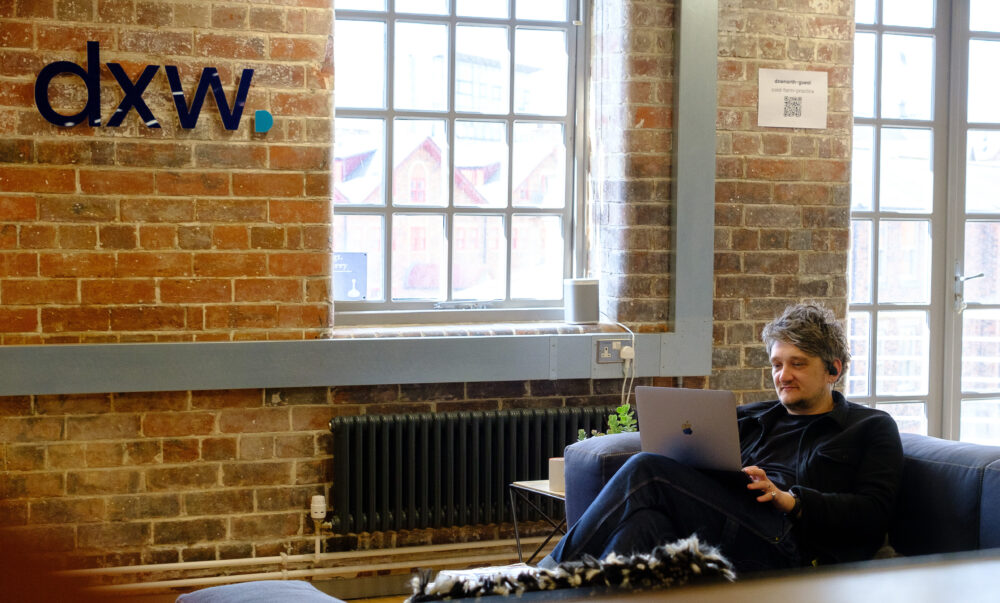As a client, how can I get the most out of a capability contract?

Suppliers working on capability contracts are still motivated by delivering value. People want a ‘why’ to get behind
Originally published by ThinkDigital Partners
Over the last 5 years or so, dxw has worked on a number of capability contracts. We’ve seen these used increasingly by government departments and have learned a lot about how to get the most out of them. So we wanted to share some of the ways clients can make sure they lead to successful outcomes for them and their users.
What is a capability contract?
Capability contracts are different from other contracts because as a supplier, we’re asked to provide people rather than deliver an outcome for the client. That remains the responsibility of the buyer, who also leads on things like task management.
They’re often used to bolster or plug gaps in permanent teams, tend to be longer term placements as part of larger programmes of work, and usually mean us blending with internal staff and other suppliers.
So, how can you get the most from them?
Approach your supplier as a partner
It’s easy to default to seeing suppliers on capability contracts as just being the boots on the ground. There to receive the brief and get on with the job at hand. But including them in decision making where possible, and treating them as a valued partner, will ensure you make the most of what they can offer.
The more open you are with your supplier, the easier it is for them to understand your priorities, what’s behind your decision making, and help you mitigate and tackle any challenges you’re facing.
Leave grades and job titles at the door
Grading is integral to the structure of the Civil Service and most procurements ask for detailed rate cards with multiple levels across a number of specific job titles. But job titles and grades don’t necessarily have the same meaning to your supplier or translate into how their teams are structured.
Being open minded about the individuals you’re working with will mean you avoid excluding knowledgeable and experienced people who could help you.
Our people are often able to flex into different types of roles, for example. This means they can offer wider insight and value to your teams. Some clients may find they don’t need as large a team as they think because agencies can supply multidisciplinary individuals. Sharing your goals and intended outcomes makes it easier for us to place the right mix of people, maximising budgets and avoiding oversized teams.
Listen to feedback from your supplier if they offer it
Even in blended environments, your supplier could make up a significant proportion of the people delivering your work. That means they’ll have valuable ears and eyes on the ground, and will often be the first to hear if there’s an issue with delivery or within teams. It’s worth seeking out and listening to any feedback they provide.
Recognise where flexibility is valuable
It can be tempting to pin down your supplier through detailed commercial arrangements to make sure you have as much control as possible over how a contract is delivered. But you won’t always know in advance how you’ll want to work together, and where flexibility in delivery practices might be beneficial to the success of the project. It’s worth trying to retain some flexibility or the option to amend agreements, if you can. This is easier if there’s a good level of trust. Take the time to invest in building good relationships based on open, honest communication upfront and establish clear roles and expectations.
When you’re working with an individual or small group of contractors, it’s natural (and usually sensible) to expect them to slot into your ways of working. But if you’re engaging with an agency to provide whole or almost-whole teams, inviting them to help you shape ways of working means you’ll learn from each other and will make things run more smoothly. Be prepared to adapt and flex as you go, and iterate as you learn what is and isn’t working.
Be as clear as you can about your intended outcomes
Suppliers working on capability contracts are still motivated by delivering value. People want a ‘why’ to get behind. The sooner you’re able to establish and share what your intended outcomes are, the more you’ll inspire your teams. At dxw our people work for us because they’re passionate about delivering great public services. That’s what gets them out of bed every morning. Give them something to rally around!